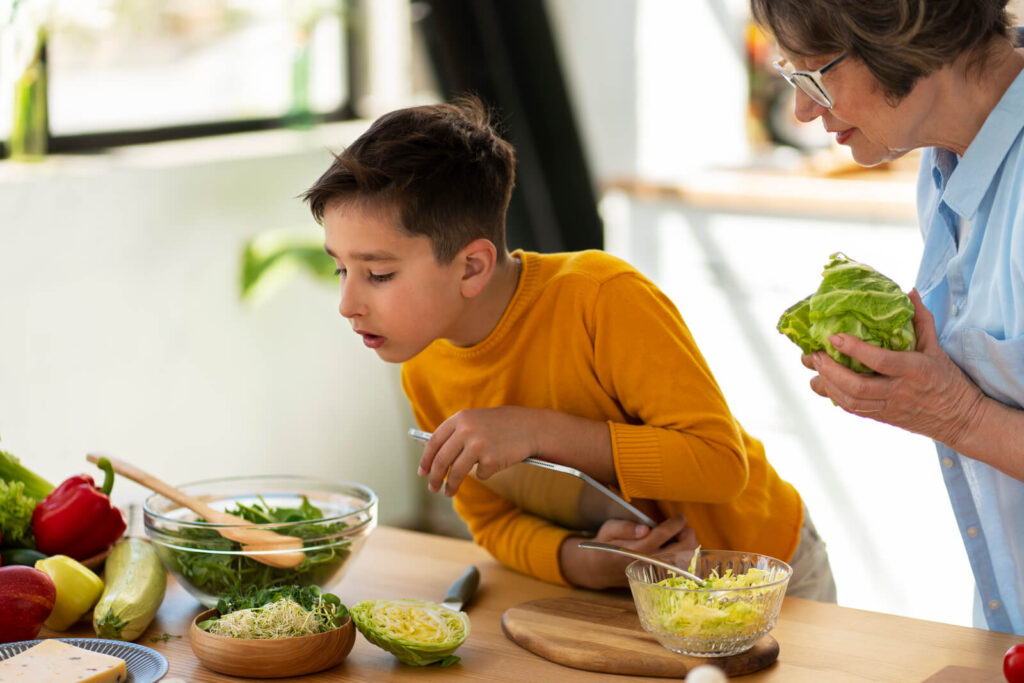Cooking classes are more than just a fun way to spend an evening; they offer valuable insights into nutrition and healthy eating habits. Many people find themselves in a culinary rut, relying on the same meals and ingredients, which can lead to unbalanced diets. Engaging in cooking classes can provide the knowledge and skills necessary to break these patterns, leading to improved dietary habits. Here’s how cooking classes can transform your approach to food and nutrition.
Learning the Basics of Nutrition
One of the primary benefits of cooking classes is the opportunity to learn about nutrition in a practical and engaging way. Instructors often emphasize the importance of using fresh, whole ingredients and understanding their nutritional value. Participants can discover how to read food labels, choose healthier alternatives, and create balanced meals that nourish their bodies. Incorporating supplements like Cellsentials can further support general health maintenance and well-being.
By learning about macronutrients—proteins, fats, and carbohydrates—individuals gain a clearer understanding of what their bodies need to thrive. This foundational knowledge helps to dispel common myths about food and empowers participants to make informed choices in their everyday cooking.
Hands-On Experience with Cooking Techniques
Cooking classes provide hands-on experience that goes beyond simply following a recipe. Participants learn essential cooking techniques, such as chopping, sautéing, and roasting, which can enhance their culinary skills. As individuals gain confidence in the kitchen, they become more likely to experiment with new ingredients and recipes.
This experimentation is key to improving dietary habits. When people feel comfortable in the kitchen, they are more inclined to try cooking from scratch, leading to a greater variety of meals. This not only keeps mealtime exciting but also promotes healthier choices, as homemade meals typically use fresher ingredients compared to pre-packaged alternatives.
Encouraging Mindful Eating
Cooking classes often foster a sense of mindfulness around food. Participants are encouraged to engage with their ingredients, understanding where they come from and how they contribute to their overall well-being. This connection to food can transform the way individuals view their meals, shifting the focus from eating mindlessly to appreciating the flavors and textures of different ingredients.
Mindful eating encourages individuals to savor their meals, which can enhance satisfaction and prevent overeating. By learning to appreciate food in a deeper way, people are more likely to make healthier choices that align with their nutritional goals.
Building a Community Around Food
Cooking classes often create a sense of community among participants. Sharing the cooking experience fosters camaraderie, allowing individuals to connect with others who share similar interests in healthy eating. This support network can be invaluable for those seeking to improve their dietary habits.
Additionally, cooking together allows participants to exchange ideas and tips, further enriching their culinary experiences. This collaborative environment can lead to lasting friendships and ongoing support as individuals embark on their journeys toward healthier eating.
Inspiring Creativity in the Kitchen
Many people view cooking as a chore rather than an enjoyable activity. Cooking classes can ignite a passion for food preparation by encouraging creativity and experimentation. Instructors often challenge participants to think outside the box, using various ingredients and flavors to create unique dishes.
This newfound creativity can make meal preparation feel less daunting and more enjoyable. Participants may find themselves inspired to try new recipes, incorporate seasonal ingredients, or even invent their own dishes. As cooking becomes a more pleasurable experience, individuals are more likely to make it a regular part of their lives.
Developing Long-Term Healthy Habits
The skills and knowledge gained from cooking classes can lead to long-term changes in dietary habits. By fostering a greater understanding of nutrition and cooking techniques, individuals are empowered to take control of their eating habits. They are more likely to prepare meals at home, opt for healthier ingredients, and avoid processed foods.
Moreover, the enjoyment of cooking can create a positive feedback loop, where individuals are motivated to continue exploring new recipes and ingredients. This ongoing engagement with food not only enhances their culinary repertoire but also solidifies healthier eating habits over time.
Improve Your Diet and Your Skill
Cooking classes offer a unique and enjoyable approach to nutrition education. By providing hands-on experience, fostering mindfulness, and encouraging creativity, these classes empower individuals to make informed dietary choices. The community built around cooking also offers support and inspiration, making it easier to adopt healthier habits. Whether you’re a seasoned chef or a complete novice, joining a cooking class can be a transformative step toward a healthier, more balanced lifestyle. So why not dive in and discover the benefits of cooking for yourself?

